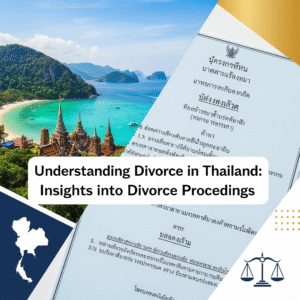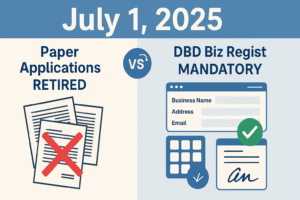Can foreigners buy property in Thailand?
Key takeaways
- Foreigners can obtain freehold ownership of condominium units.
- Foreigners can own real estate by way of creating a Thai limited company or entering into a leasehold agreement.
An overview of real estate ownership in Thailand for foreigners
In general, foreigners buy property in Thailand for numerous reasons, including investment opportunities, affordability, ease of doing business, and retirement.
From a legal standpoint, foreigners (those not holding Thai citizenship) are restricted in the purchasing and holding of land in Thailand. There are, however, a few exceptions that we will discuss further in this article.
Buying property in Thailand can be a complicated process for foreigners, which involves navigating various legal complexities.
Can foreigners own a condominium unit in Thailand?
One of the most efficient ways for foreigners to own property in Thailand is by purchasing a condominium unit.
The Condominium Act, B.E. 2522 (1979), as amended in 2008, provides foreigners with the right to own a condominium in Thailand.
To obtain freehold ownership over the condominium, the foreigner must do so within the quota regulations. The law states that foreigners can own up to 49% of saleable area of a condominium. By holding freehold ownership, the foreigner owns the condominium outright and in perpetuity.
Can foreigners own land in Thailand?
As noted in the introduction, Thai law generally prohibits foreigners from owning land in Thailand outright.
There are two major exceptions to the above, including the creation of a limited company in Thailand to own the land on the behalf of a foreigner or entering into a long-term lease with a landowner.
Creation of a limited company
One of the most common ways to circumvent the restrictive land ownership laws is to work with a legal professional to create a Thai limited company that can hold the land.
It is essential that the limited company is run as a legitimate company, i.e. generating revenue, having shareholders, paying tax, etc. It should also be noted that in most cases foreigners can only hold 49% of shares in a Thai company.
To create a limited company, an individual must follow the relevant processes, including company registration, shareholder structure, capitalisation, deploying articles of association, etc.
Long-term leasing
Another strategy employed by foreigners to own property in Thailand is by entering into a long-term lease with a landowner.
By entering into a long-term leasehold, a foreigner is effectively renting the land from the landowner over a sustained period of time.
According to Section 540 of the Thailand Civil and Commercial Code, leases cannot exceed a 30-year term. However, leases can be renewed, but it should be appreciated that renewal of a lease is not an automatic right. Both parties to the lease must take active measures to renew the lease towards the end of the first initial term.
How can WSR international help your business?
At WSR international, we actively prioritize are relationships with our clients. We have worked with numerous individuals and businesses purchase property all over Thailand.
With real estate experts located in both Bangkok and Phuket, WSR International are perfectly situated to assist you.
If you would like to discuss the contents of this article in further detail, please do not hesitate to reach out to the business and legal experts at WSR International.
𝗖𝗼𝗻𝘁𝗮𝗰𝘁 𝘂𝘀:
WSR International Co., Ltd.
Chartered Square Unit 16-05, 152 North Sathorn, Khwaeng Silom, Khet Bang Rak, Bangkok 10500 VAT Registration no: 0905565001881
Phone: 6692 616 4423
Email: info@wsrlawgroup.com








